ERUA Intensive course: “Communication with patients in crisis situations”
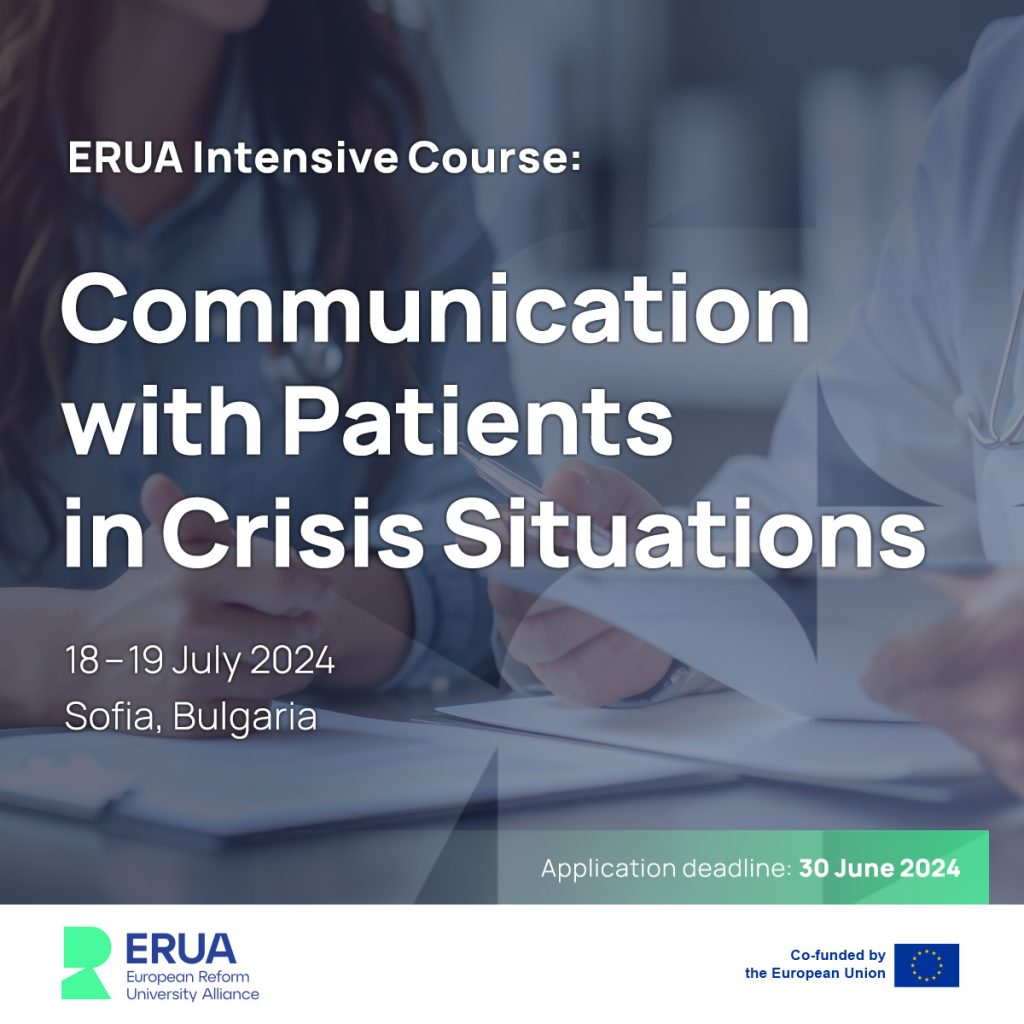
18 – 19 July 2024. Sofia, Bulgaria On the 18th and 19th of July the New Bulgarian University will conduct an onsite intensive course on “Communication with patients in crisis situations”. The course is in the field of Psychology, Social Work, Nursing, Biomedical studies and will take place at New Bulgarian University, Sofia, Bulgaria. The […]
ERUA Intensive course: “Interviewing Adults in Medical Practice”
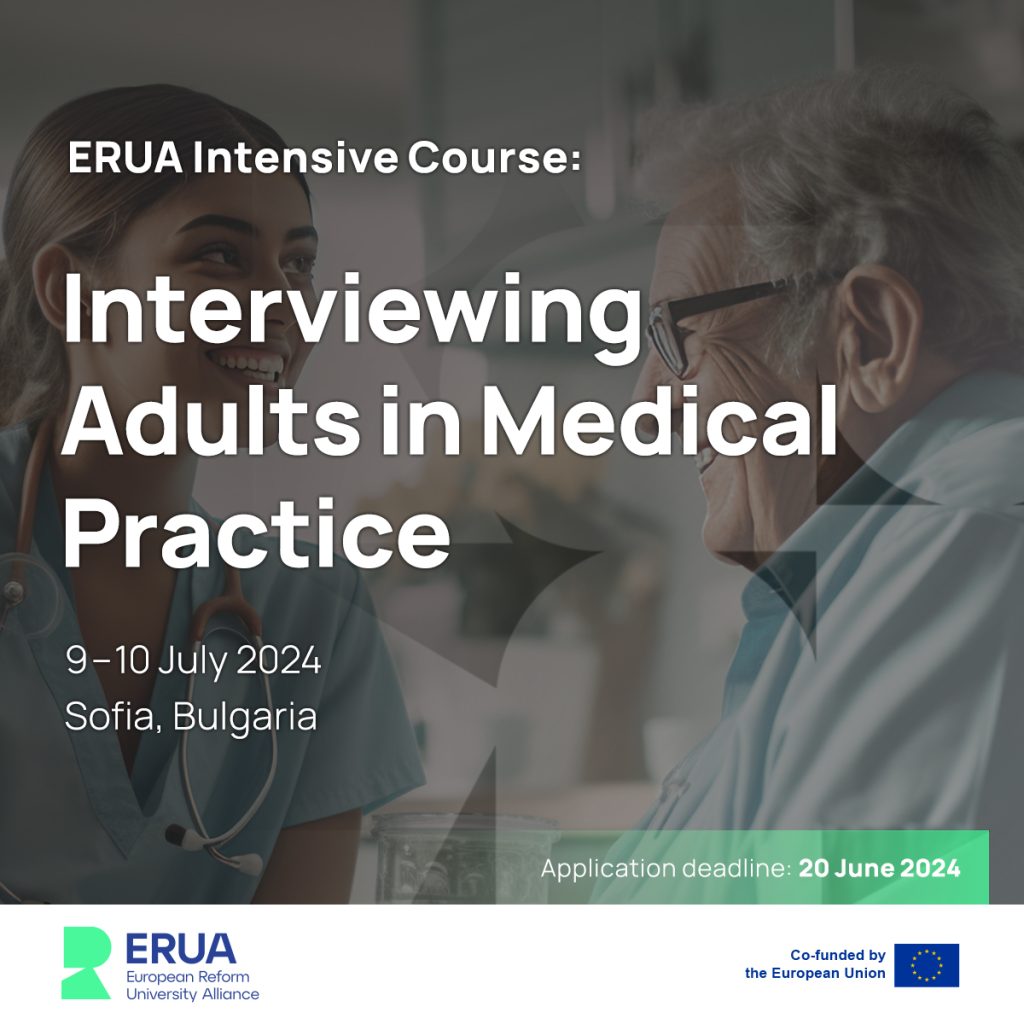
09 – 10 July 2024. Sofia, Bulgaria On the 9th and 10th of July the New Bulgarian University will conduct an intensive course on “Interviewing Adults in Medical Practice”. The course is in the field of Psychology, Social Work, Nursing, Biomedical studies and will take place at New Bulgarian University, Sofia, Bulgaria. The course will […]
Impasto and Abstract Painting for Everyone
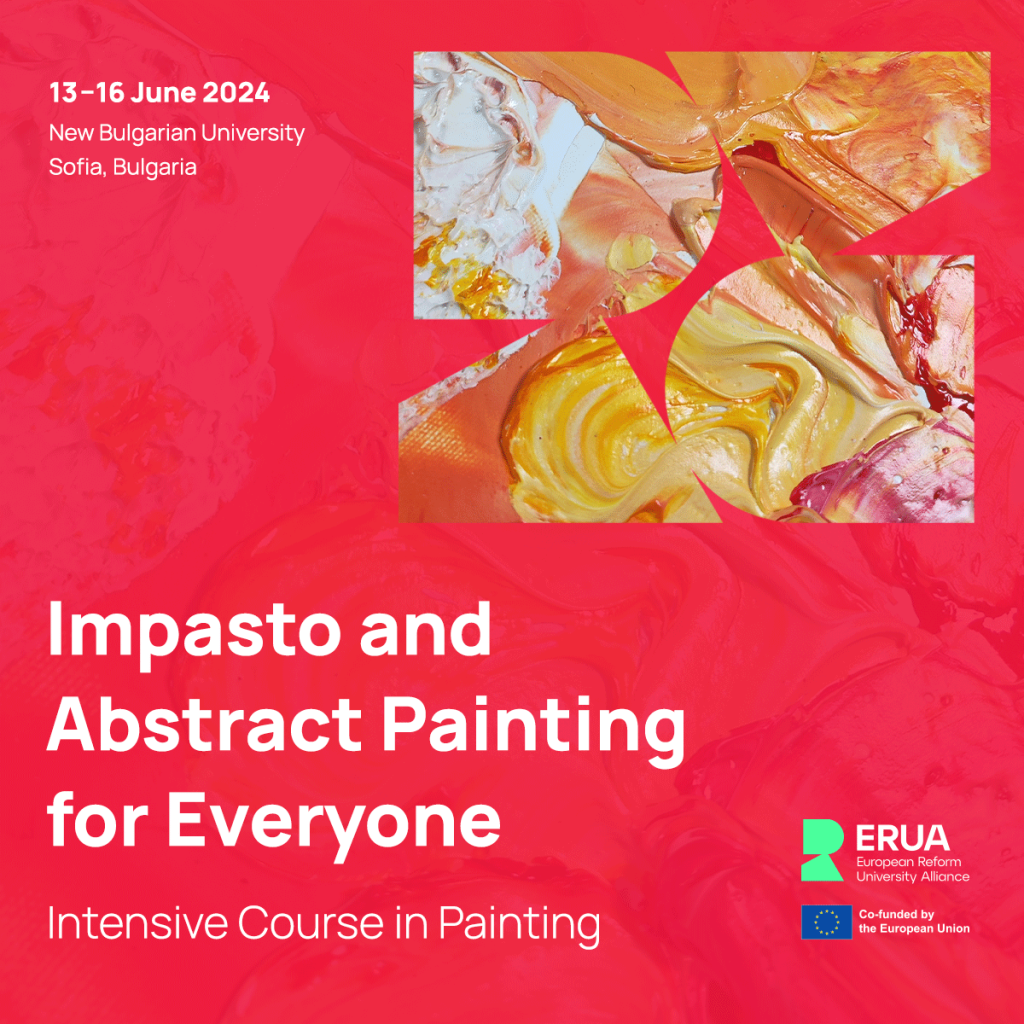
Intensive Course in Painting 13th to 16th of June 2024 Sofia, Bulgaria Between the 13th and the 16th of June, an intensive course in painting “Impasto and Abstract Painting for Everyone” will be held at New Bulgarian University, Sofia, Bulgaria. During this intensive course students will be introduced to the world of fine art […]
ERUA Media, Culture & Communication Summer School (EMCCSS) – Digital utopias and dystopias

The ERUA Media, Culture & Communication Summer School will be taking place at Paris 8 University’s St Denis campus from September 9th – September 11th 2024. It will bring together approximately 25 PhD students and 6 professor-researchers from the field of information and communication science / media & cultural studies, and related specializations in sociology, aesthetics […]
Summer Intensive Programme: Corpus Methods in Linguistics – compilation, annotation and statistical analysis

03 – 07 June 2024 Paris (France) Paris 8 University, with the participation of the ERUA is pleased to announce their upcoming Summer Intensive Programme: Corpus Methods in Linguistics-compilation, annotation, and quantitative analysis that will take place between 3rd and 7th of June 2024, at the Université Paris 8, Vincennes – Saint Denis. This will […]
Comedy in American Film and Media (1900 – 1950) – intensive course
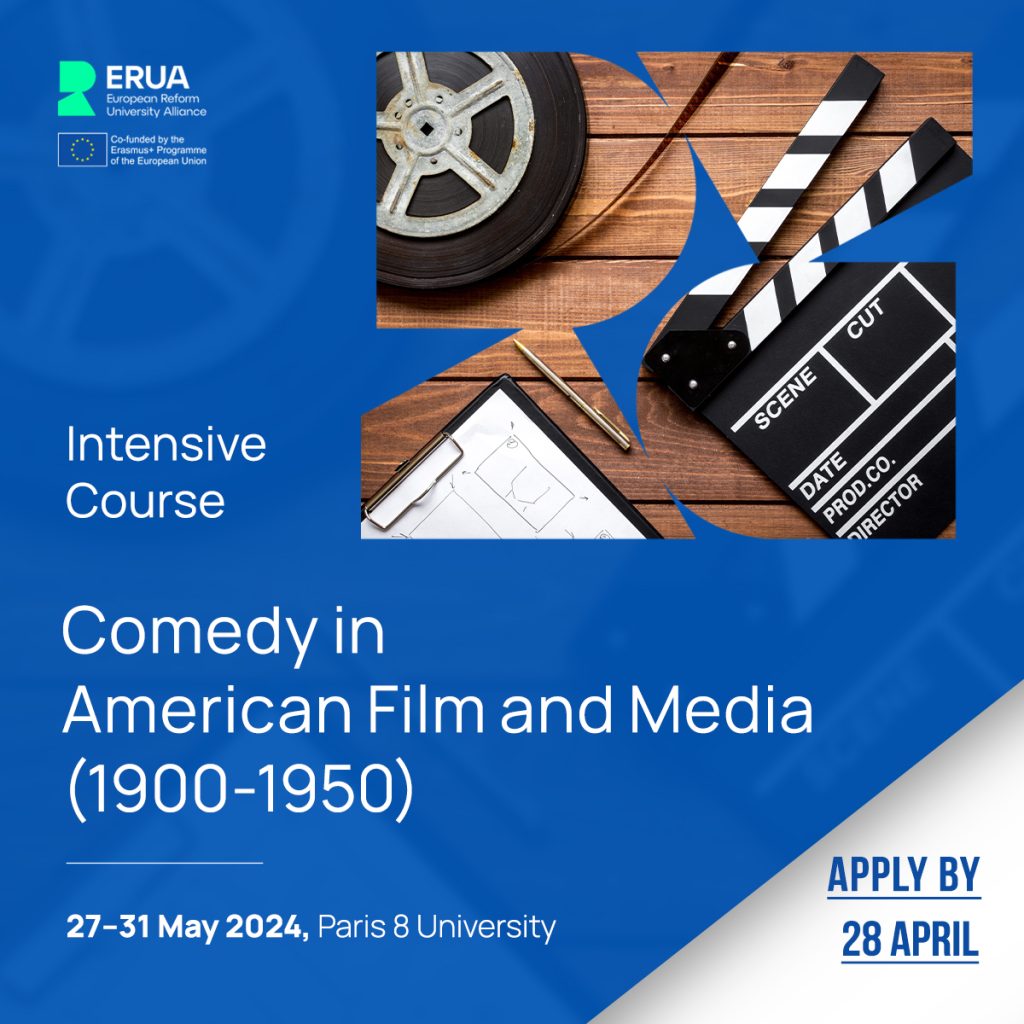
27-31 May 2024 Paris 8 University Paris 8 University is announcing a course focused on Film and Media Studies. The course will take place on-site in Paris from the 27th until the 31st of May 2024. It will be led by Noah Teichner. The course is aimed to make students gain the following […]
Digital Conference on Gendered Innovation – Call for abstracts
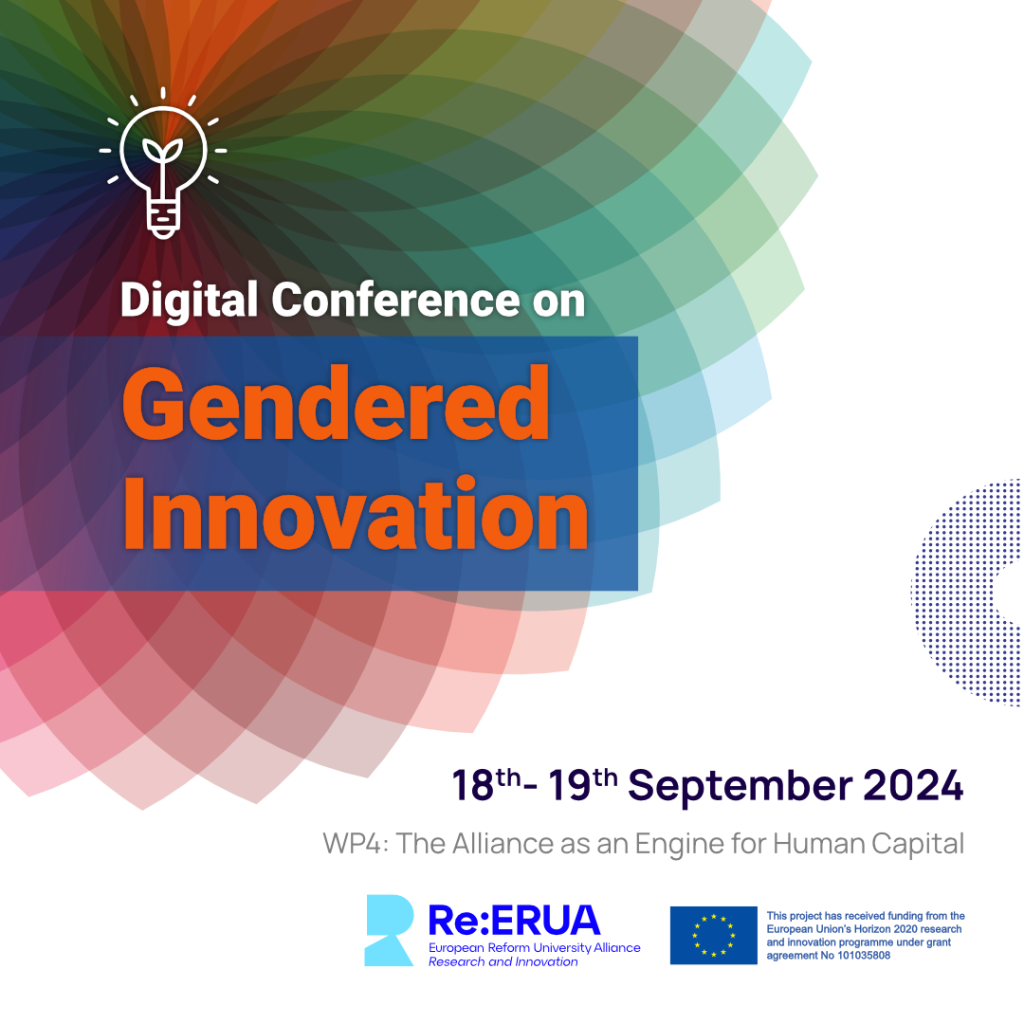
18-19 September 2024 Online Abstract Submission Deadline: 10th June 2024, 23:59 (CET). The University of the Aegean, within the Re:ERUA initiative, cordially invites submissions for participation in the 2024 online Digital Conference on Gendered Innovation, scheduled 18-19 September 2024. This conference is open to both ERUA/Re:ERUA member institutions and interested stakeholders, bringing together […]
Another version of myself – or Learning English through the art of puppetry
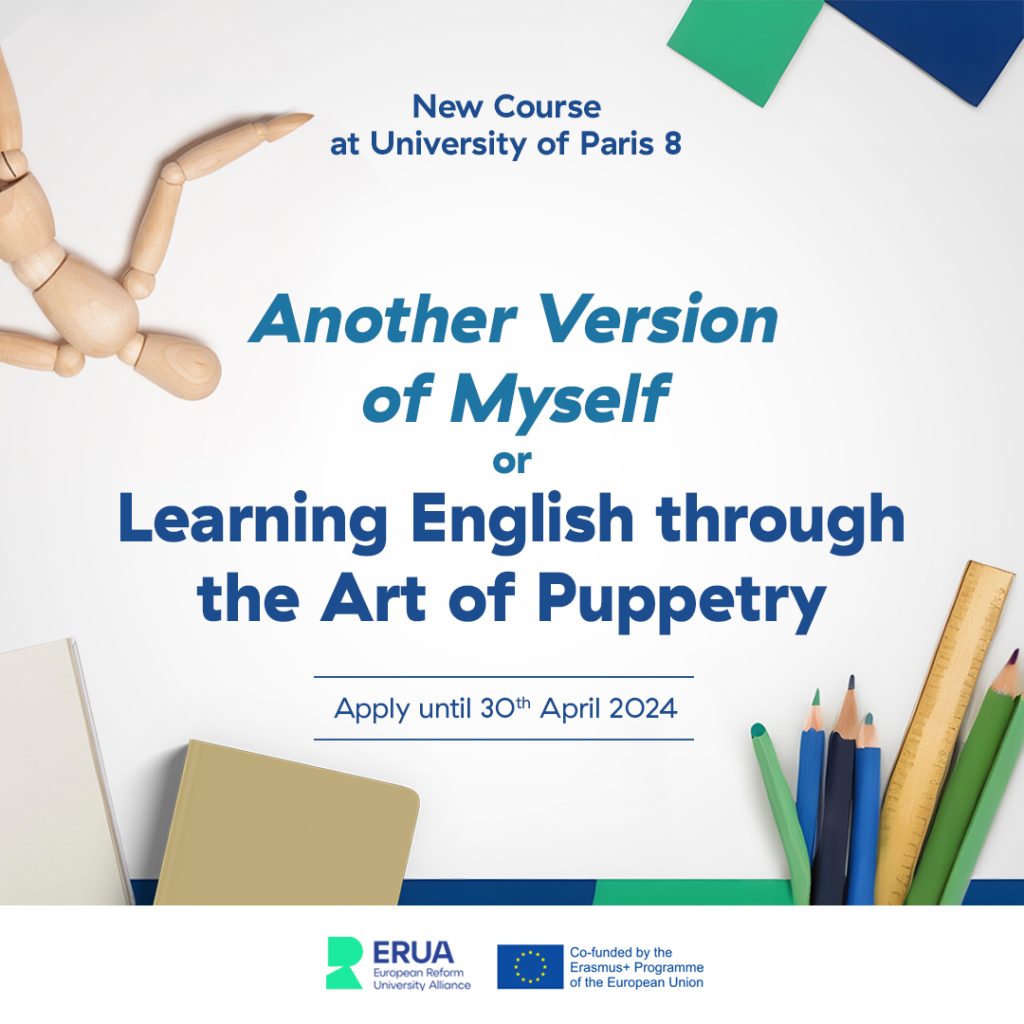
10 – 14 June 2024 Paris 8 University Paris 8 University is announcing an upcoming workshop “Another version of myself – or Learning English through the art of puppetry” designed to invigorate language learning through creativity and playfulness. The course will take place in Paris between the 10th and 14th of June 2024 and will […]
Artistic thought and visualisation of time – Documents, archives and collage (course in Spanish)
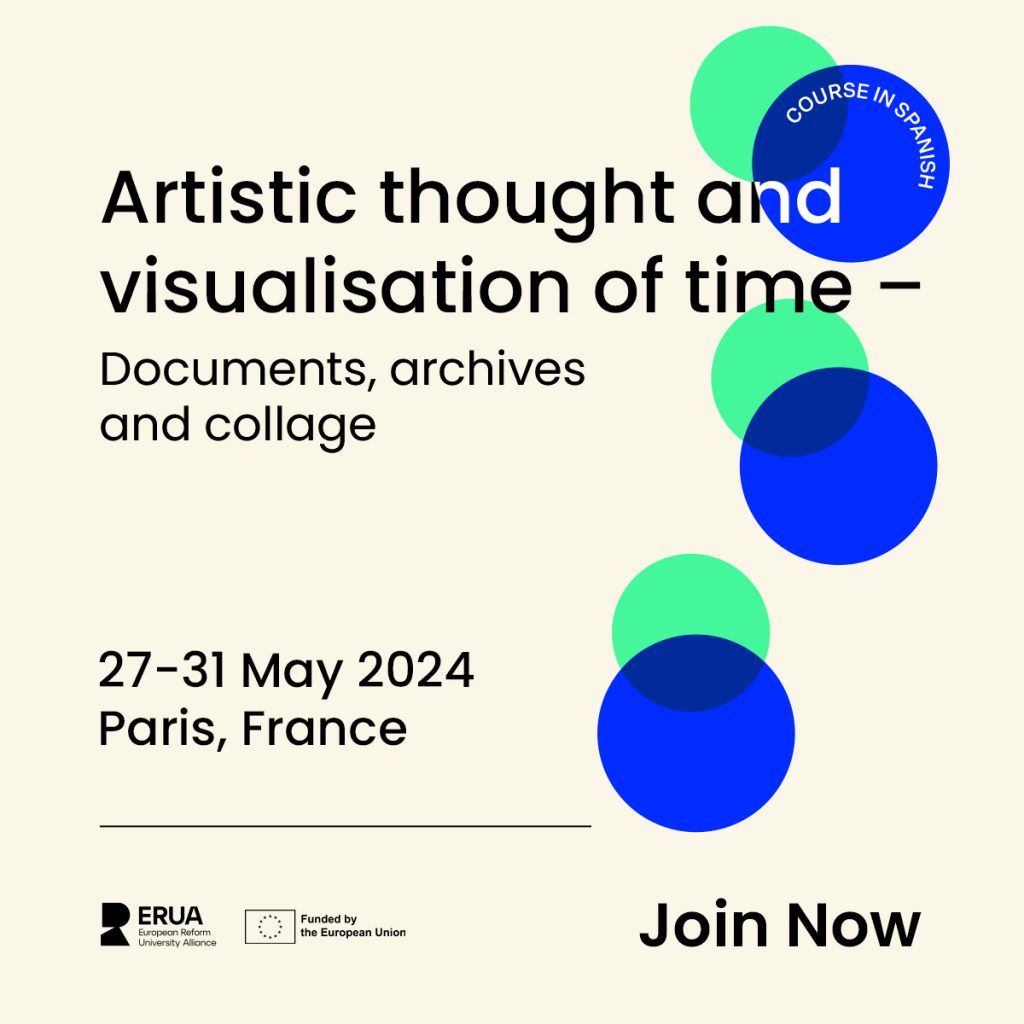
Pensamiento artístico y visualización del tiempo – Documentos, archivos y collage. 27-31 May 2024 Paris 8 University In resonance with the Écologie des arts et des médias (EDAM) (Ecology of Arts and Media) master’s degree, this course offers an immersion in collage and reflections on its contemporary relevance. Collage will be understood here as […]
Art in public spaces
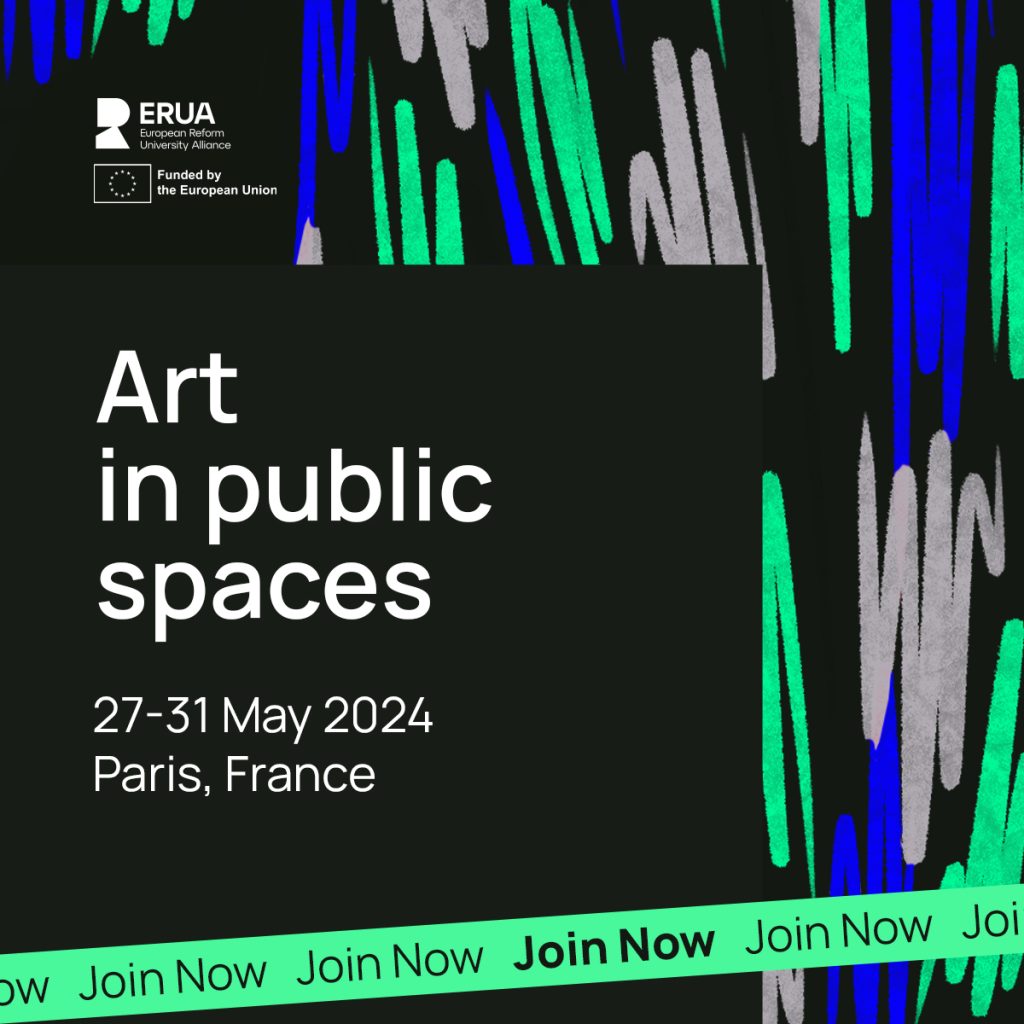
27-31 May 2024 Paris, France Between the 27th and the 31st of May, an intensive course “Art in public spaces” will take place in Paris 8 University. In this course students will have the chance to study the relationship between artworks and their environment. Starting from the observation of historic and contemporary works – ranging […]